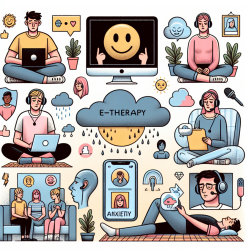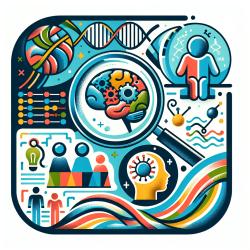Unlocking the Future: Embracing Psilocybin-Assisted Therapy in Medical Practice
The landscape of mental health treatment is evolving, with psilocybin-assisted therapy gaining attention for its potential therapeutic benefits. As educators and practitioners in the field of speech-language pathology, we must stay informed about emerging treatments that could enhance our practice and improve patient outcomes. A recent study titled Predictors of Medical Students’ Perceptions of Psilocybin-Assisted Therapy for Use in Medical Practice provides valuable insights into the perceptions and knowledge of future medical professionals regarding this innovative therapy.
Understanding Medical Students' Perceptions
The study surveyed 213 medical students to assess their perceptions, knowledge, and concerns about psilocybin-assisted therapy. The findings revealed that students with greater perceived knowledge about psilocybin, less concern for its potential adverse effects, and a belief in its legalization for recreational use had more positive attitudes towards its medical application. This highlights the importance of education and exposure in shaping future practitioners' openness to novel therapies.
Implications for Practice
For practitioners in speech-language pathology, understanding the potential of psilocybin-assisted therapy is crucial. Here are some key takeaways from the study that can inform our practice:
- Education is Key: As the study indicates, perceived knowledge significantly influences attitudes towards psilocybin-assisted therapy. Practitioners should seek out educational opportunities to enhance their understanding of this emerging field.
- Addressing Concerns: While concerns about adverse effects exist, it's important to differentiate between recreational and therapeutic use. Engaging with current research can help practitioners make informed decisions about integrating psilocybin into treatment plans.
- Advocacy for Legalization: The study suggests that support for recreational legalization correlates with positive attitudes towards medical use. Practitioners can play a role in advocacy efforts to ensure safe and regulated access to psilocybin for therapeutic purposes.
Encouraging Further Research
The study underscores the need for continued research into psilocybin-assisted therapy. As practitioners, we can contribute to this growing body of knowledge by:
- Participating in Research: Collaborate with researchers to explore the effects of psilocybin on communication disorders and other areas within speech-language pathology.
- Staying Informed: Keep abreast of new studies and developments in the field to ensure that our practice is evidence-based and aligned with the latest findings.
- Sharing Knowledge: Educate colleagues and stakeholders about the potential benefits and considerations of psilocybin-assisted therapy to foster a more informed and supportive professional community.
Conclusion
As psilocybin-assisted therapy continues to gain traction, it presents an opportunity for speech-language pathologists to expand their therapeutic toolkit and enhance patient outcomes. By embracing education, addressing concerns, and advocating for research and legalization, we can help pave the way for the integration of this promising therapy into mainstream practice. To read the original research paper, please follow this link: Predictors of Medical Students’ Perceptions of Psilocybin-Assisted Therapy for Use in Medical Practice.










